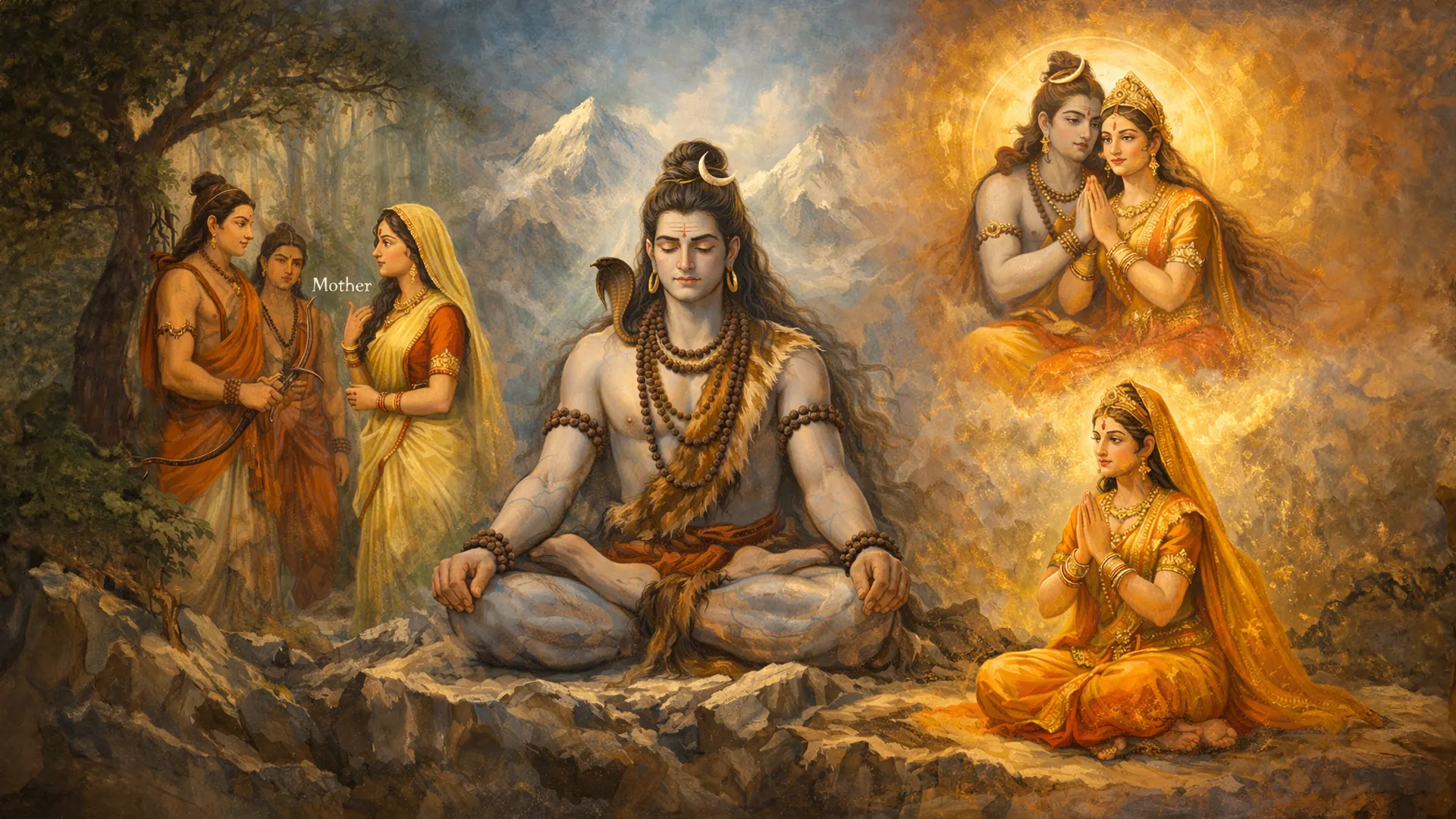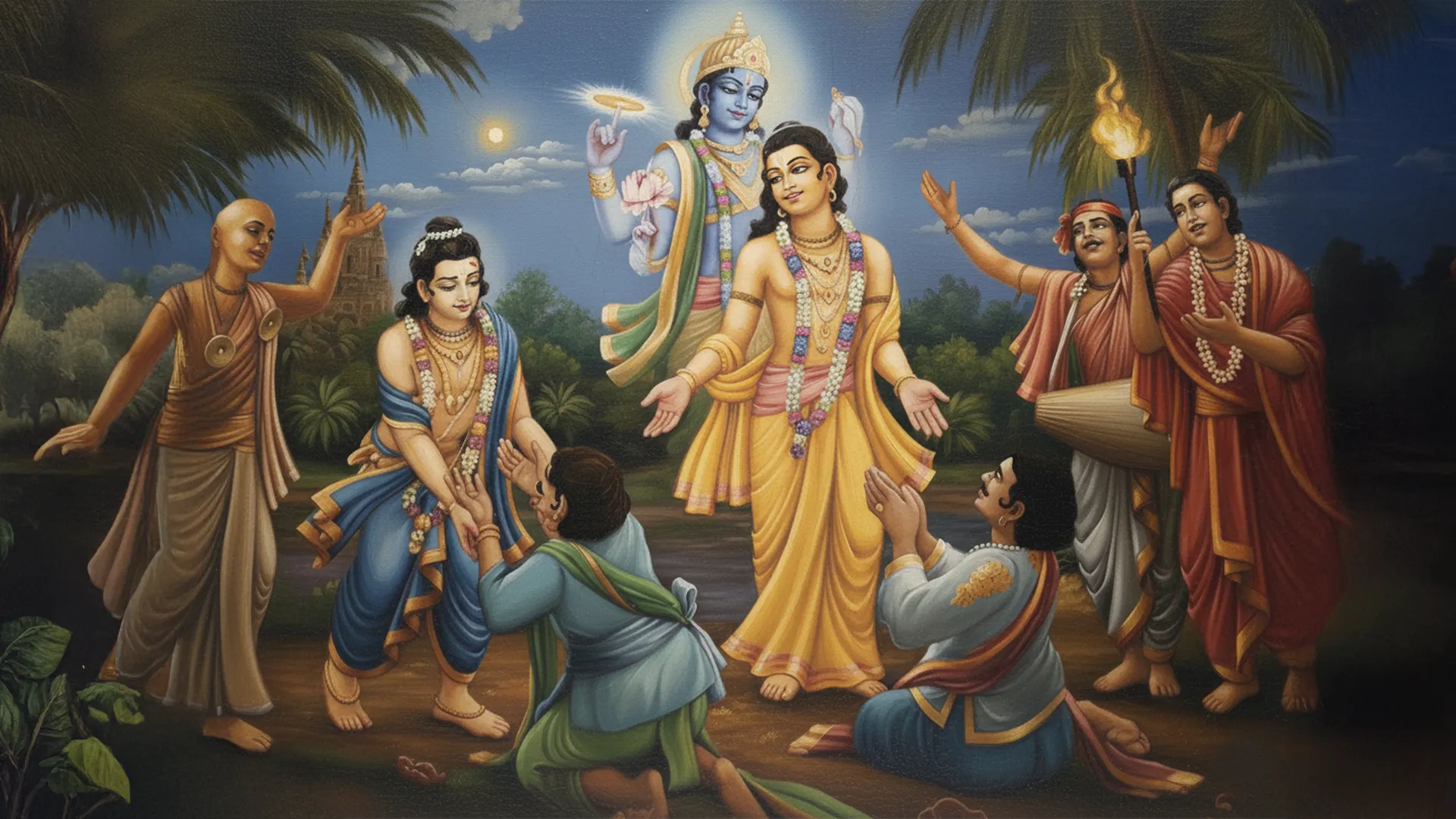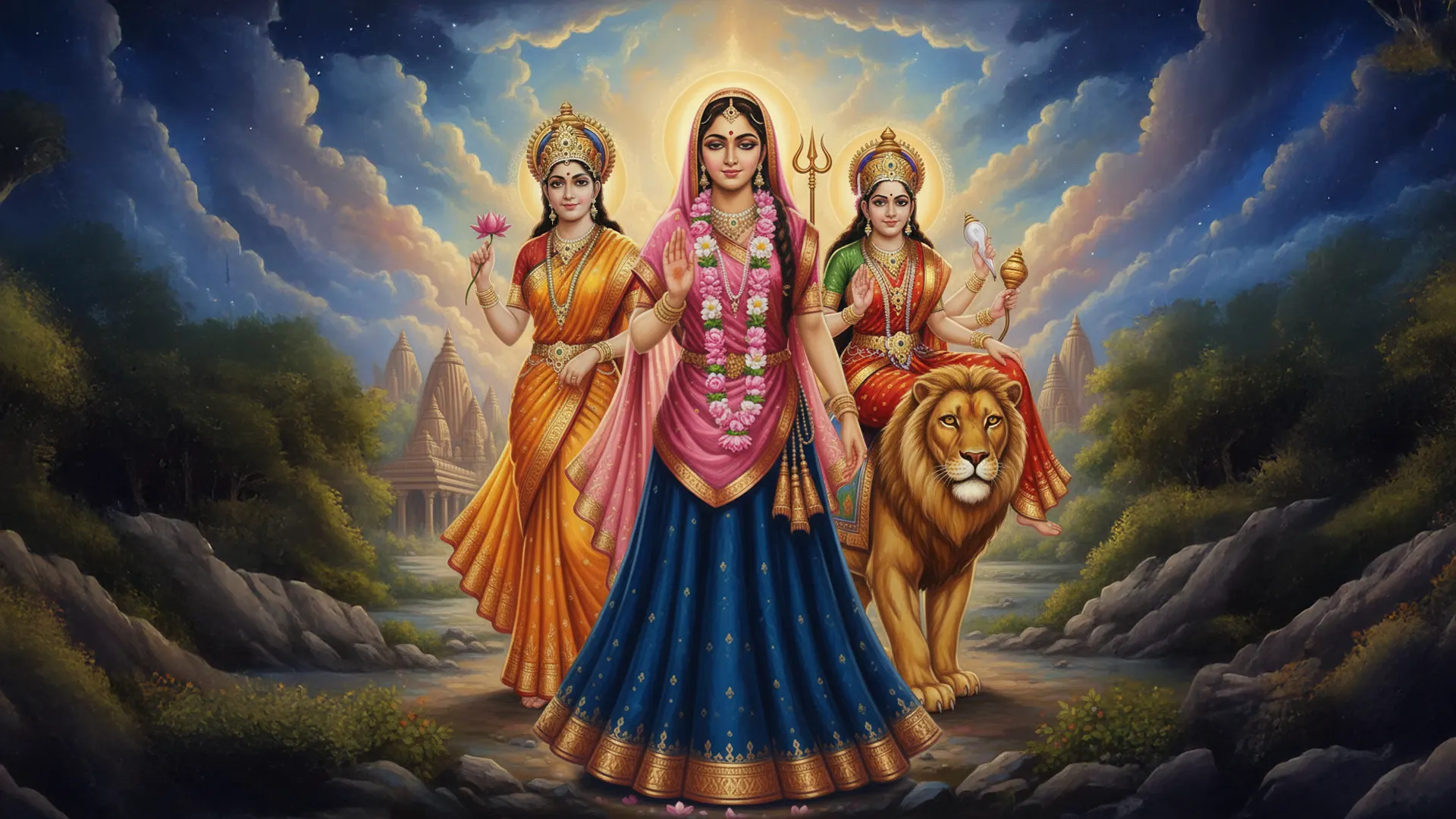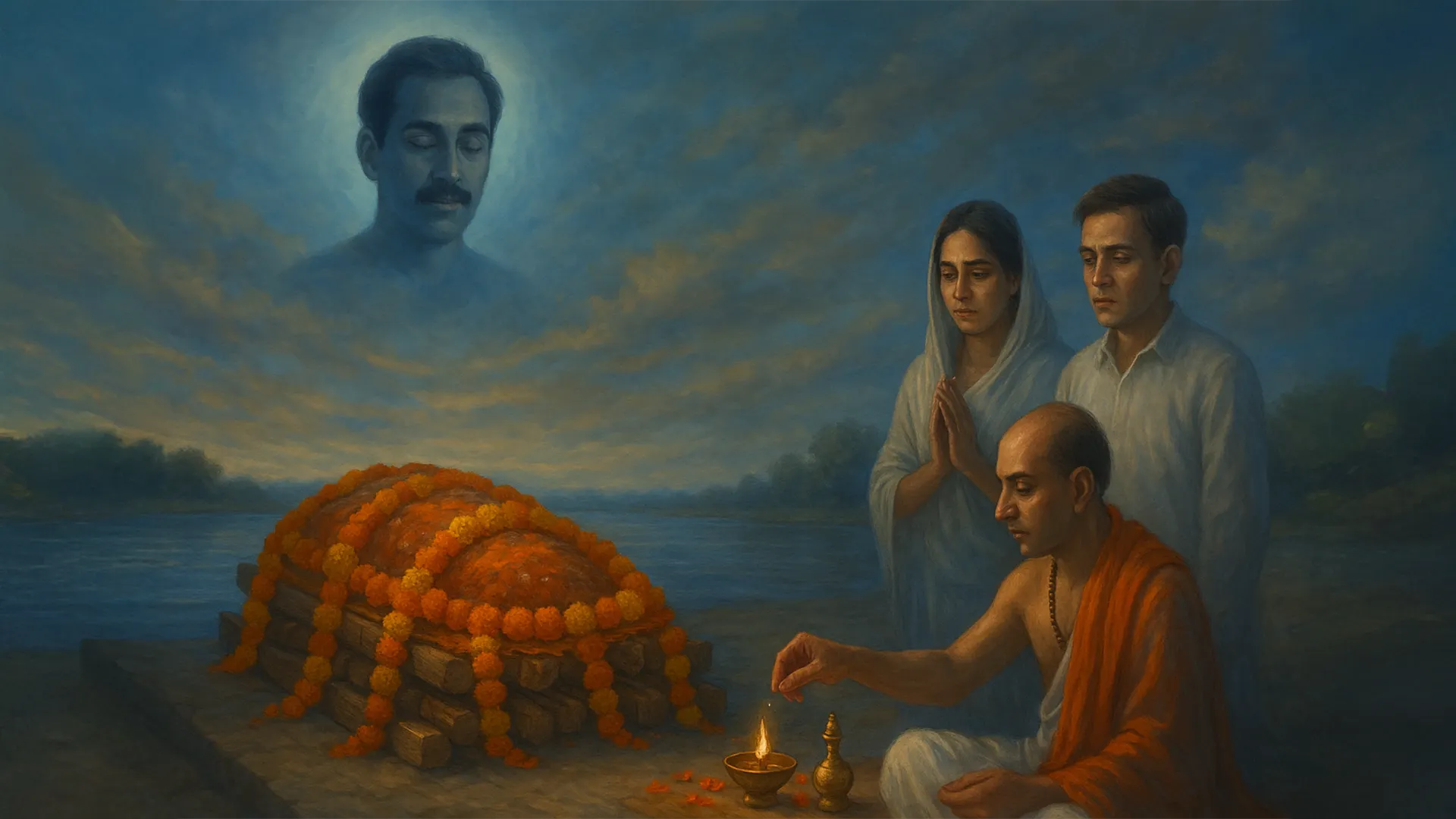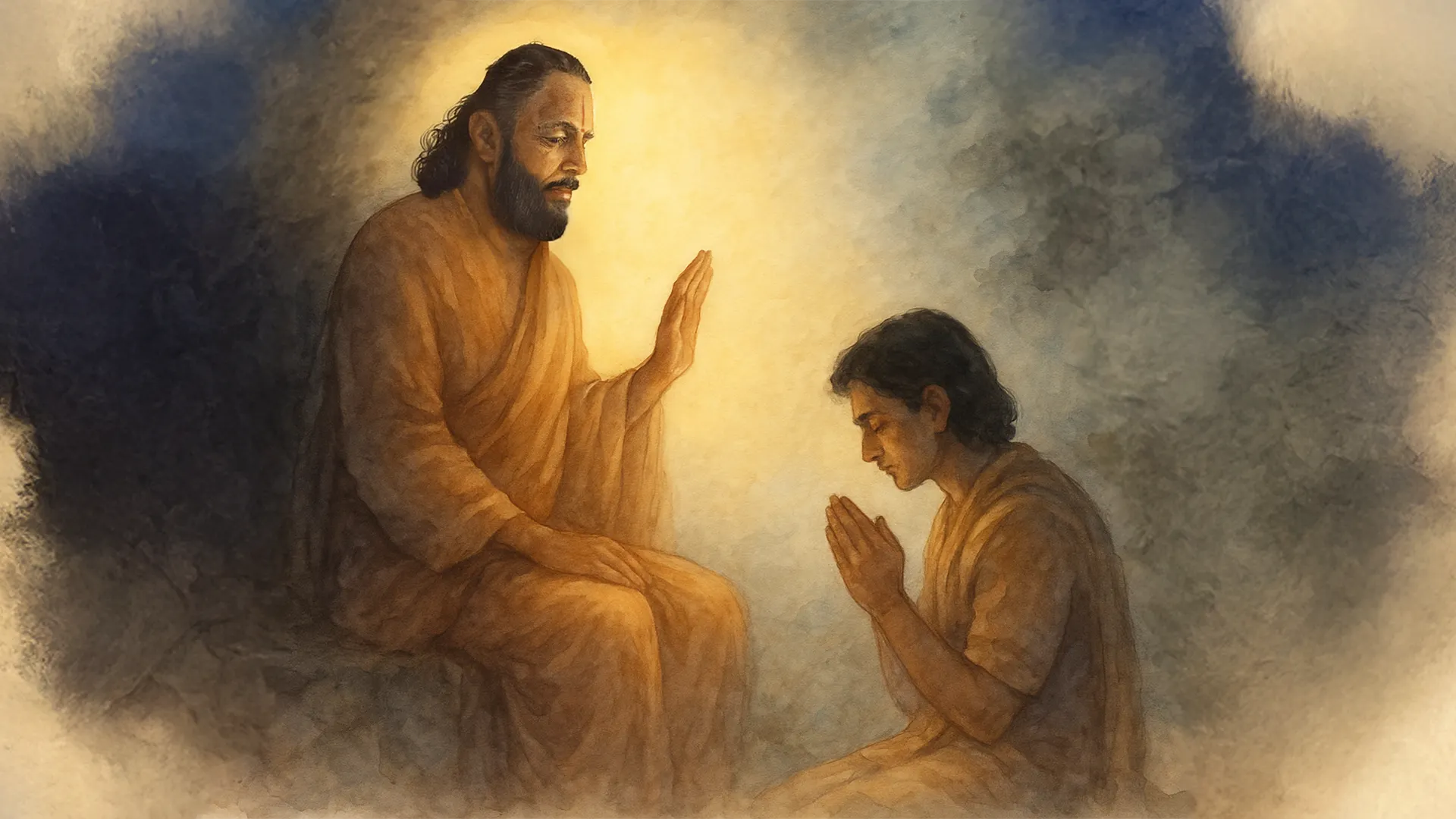There's this widespread myth floating around that if you want to get into spirituality, you have to pack up your bags, leave your job, and disappear from the world. This thought can feel heavy for many of us, especially if you're building a career. It makes exploring spiritual paths seem impossible because, let's be honest, who wants to give up everything they've worked for?
But here's the real insight, straight from the timeless wisdom of the Bhagavad Gita:
You don't need to give up work to be spiritual.
You just need to transform your attitude toward it.
The Gita’s Wisdom: Work Is Not the Problem
In Chapter 2, Verse 47 of the Bhagavad Gita, Shree Krishna tells Arjun:
कर्मण्येवाधिकारस्ते मा फलेषु कदाचन |
मा कर्मफलहेतुर्भूर्मा ते सङ्गोऽस्त्वकर्मणि || 47 ||
karmaṇy-evādhikāras te mā phaleṣhu kadāchana
mā karma-phala-hetur bhūr mā te saṅgo ’stvakarmaṇi
“You have a right to perform your prescribed duties, but are not entitled to the fruits of your actions. Never consider yourself to be the cause of the results of your activities, nor be attached to inaction.”
This single verse perfectly captures the essence of Karma Yog—the yog of selfless action.
When Shree Krishna tells Arjun this, He's not telling him to abandon the battlefield and become a hermit. No! He's telling him to stay engaged, but to completely change his mindset. Instead of fighting with the thought, "What will I gain from this war? What about my victory, my reputation?", He's asking Arjun to shift his entire consciousness.
The key here is to move from seeking personal gain to offering your actions in service to a higher purpose or to the Divine.
From Vengeance to Devotion: Arjun’s Inner Transformation
Before hearing Krishna’s message, Arjun saw the war as deeply personal. It was about righting past wrongs, defending his family’s honour, and reclaiming what had been unjustly taken. His mind was clouded by grief, anger, and moral confusion. The battlefield felt like a burden—a place of violence, loss, and inner conflict.
But after receiving the wisdom of the Bhagavad Gita, something profound shifted within him. Externally, nothing changed—he still picked up his bow and stepped into battle. But internally, everything changed.
He was no longer fighting out of rage or attachment. He wasn’t acting for revenge, personal glory, or even fear of failure. He fought because it was his Dharma—his sacred duty. And he did it not for himself, but as an offering to the Divine.
Do I Have to Become a Monk to be Spiritual?
People often ask, “If I want to be spiritual, do I have to become a monk or give up everything?” The truth is, spirituality isn’t about quitting your job or changing your lifestyle completely. It’s about changing your mindset—how you show up in your everyday life.
There’s a classic story about a curious disciple who asked a wise Zen Master, “Before you experienced enlightenment, what did you do?”
The Zen Master, with a calm smile, replied, "I chopped wood and I carried water." These were the simple, everyday tasks everyone in the monastery performed.
Then the disciple, even more curious, asked, "And after enlightenment, what do you do now?"
The Zen Master chuckled softly and said, "I chop wood and carry water."
This story might seem a bit puzzling at first, but it holds a profound lesson. The Zen Master's external actions—chopping wood and carrying water—remained the same. What shifted was the awareness with which these tasks were done. Before enlightenment, the Zen Master likely performed these chores simply as duties, perhaps wishing they were over. After enlightenment, the same tasks were carried out with a deep sense of presence, peace, and understanding.
The simple acts of chopping wood and carrying water became spiritual in themselves because of the inner attitude and complete awareness brought to them. It's all about bringing a different kind of awareness and perspective to everything we do. The external tasks remained unchanged. What shifted was the awareness with which they were done.
Karma Yog: Awareness + Devotion
In Karma Yog, the practice goes beyond simple mindfulness. It’s not just about being fully present in whatever you do—it’s about infusing every action with devotion. Each task, no matter how ordinary, becomes an offering to the Divine. This subtle shift—from self-centeredness to surrender—turns work into worship.
Example: Two software engineers in the same company, both equally skilled and hardworking.
One is focused entirely on outcomes—promotions, praise, and comparison with peers. His days are filled with anxiety. Will this get me ahead? What if I fall behind? The stress of competition and the pressure to “win” slowly eat away at his peace of mind.
When he receives his salary, he either hoards it out of fear for the future or spends it entirely on his own comforts and pleasures—gadgets, vacations, indulgences. Work, for him, is a ladder to climb and a means to consume. However, even with achievement, peace remains distant because the effort is rooted in ego and attachment.
Now, look at the other. He also gives his 100%—he codes sincerely, meets deadlines, and collaborates with the team. But his mindset is different. He silently offers every task to God. For him, this job isn’t just a career; it’s a form of seva—a sacred offering. He sees his intellect, skills, and even his job as blessings, gifts given by God to be used in service. So, he works not to impress but to express devotion. He stays calm whether he’s praised or not, promoted or overlooked. He trusts that the results are in God’s hands.
When he receives his salary, he doesn’t treat it as a reward to fuel more desires. He lives simply and sets aside a portion to serve society with a deeper awareness: “God resides in all beings. When I serve them, I serve Him.” This jeever-daya bhav transforms his giving into service. He helps not out of pity or pride but out of devotion.
One of the most liberating teachings of the Gita is:
Do your best— but let go of the results.
Why?
Because intention is everything, according to the law of cause and effect, or karma, it’s not just what you do but why you do it that shapes your inner evolution. When action is driven by personal desire or gain alone, the fruit is limited to the material. But the outcome becomes spiritual when that same action is offered selflessly, with devotion, detachment, and surrender. It purifies the mind, expands the heart, and draws you closer to the Divine.
The King Is a Servant
At the height of his power, King Chandragupta once turned to his Guru Acharya Chanakya and asked, "In the grand scheme of Vedic philosophy, what is the true status of a king?"
Chanakya, ever composed and sharp, looked the emperor in the eye and replied, "A king is the servant of his people."
At first glance, the statement may seem paradoxical. A king—servant? Isn't he the ruler of the land, commander of armies, the one to whom everyone bows?
But Chanakya's response reflects a deeper spiritual truth. In the Vedic view—and more specifically, in the teachings of Karma Yog—we are never the owners, never the masters. We are all servants, not just of society but of God. Our talents, our positions, our titles—none of these belong to us. They are entrusted to us by the Divine for a higher purpose.
Chaitanya Mahaprabhu said:
जीवेर स्वरूप होय नित्य कृष्ण दास
Jiver swaroop hoy nitya Krishna das
Meaning: The true nature of the soul is that it is the eternal servant of Krishna.
Whether you’re a king, coder, surgeon, or teacher, your role is just a vehicle—not your true identity. What matters is the bhav behind your work. Are you chasing personal gain or serving God through the people around you?
When a teacher sees students as divine souls, when a doctor serves the God within each patient, or a parent raises a child with humble gratitude, their actions become sacred.
Do your duty fully, but surrender doership and results to God. The world may not notice, but inside, you will find peace, purpose, and a deep connection to the Divine.
The NATO Principle: Not Attached To Outcome
Swami Mukundananda beautifully captures the essence of Karma Yog with a simple acronym, NATO: Not Attached To Outcome.
Think of a golfer who’s fixated on the score. The pressure builds, enjoyment fades, and performance often suffers. But when he focuses solely on each shot, fully present and without worry, he plays with joy and often plays better.
Life works the same way. When you let go of attachment to results and commit your attention fully to the action itself, you begin to experience:
- Less stress
- Greater clarity
- Deeper satisfaction
You’re Not the Doer
A common trap is the ego saying, “I achieved this. I made it happen.” But pause and ask yourself:
- Who gave me the energy?
- Who shaped my circumstances?
- Who supported me along the way?
You are the instrument, not the doer. Realising this truth humbles us and frees us from pride.
Results Are Beyond Our Control
Why do two people who put in the same effort get very different results? Because results depend on many factors beyond our control:
- Past karmas from countless lifetimes
- Destiny
- Circumstances
- The actions of others
- Even pure chance
So why tie your peace of mind to something you can’t fully control?
Final Thoughts: Let Go, Serve Well, Stay Calm
This is the heart of the Bhagavad Gita’s teaching:
- Do your best: Engage wholeheartedly in your work.
- Let go of the rest: Release attachment to the outcome.
- Offer it to God: Turn every action into a sacred offering.
You don’t need to walk away from your job to walk the spiritual path. Transformation begins with a shift in perspective. When you embrace this shift, every task, no matter how ordinary, becomes a gateway to inner peace, self-realisation, and a profound connection with the Divine. Your work stops being just work; it becomes an act of worship, alive with purpose and sacred awareness.
Start Your Karma Yog Practice Today with 3 Powerful Steps
The wisdom of the Gita isn’t just theory—it’s a practical way to live with purpose and calm.
Try this simple 3-step practice today:
- Pick one task—big or small—and offer it to the Divine.
- Whisper to yourself, “I am the instrument, not the doer.”
- Notice how your mindset shifts—do you feel calmer, more joyful, or focused?
💬 Share in the comments: How will you bring Karma Yog into your day?
Your insight might be exactly the spark someone else needs. 🙏



